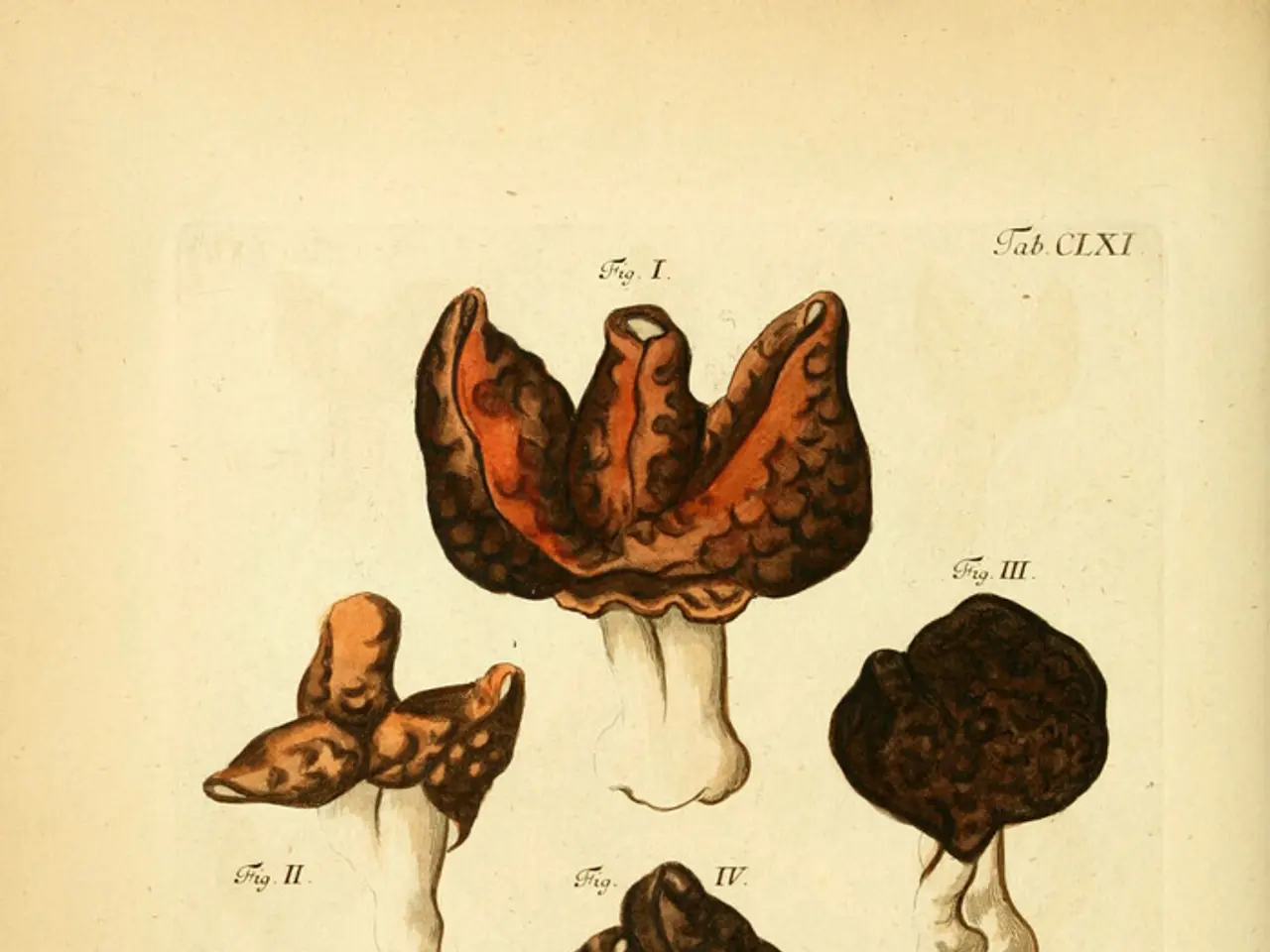Lion's Mane Mushroom's Stunning Impact on Brain Cell Renewal
Lion's Mane Mushroom: A Potential Aid for Brain Health and Neurodegenerative Diseases
Lion's Mane Mushroom (Hericium erinaceus) is a fungi that has garnered attention for its potential benefits on brain health and neurodegenerative diseases. Scientific research suggests that this unique mushroom could play a significant role in promoting brain cell regeneration, neurogenesis, and even offering treatment possibilities for neurodegenerative conditions.
Active Compounds and Mechanism
The active compounds in Lion's Mane Mushroom, known as hericenones and erinacines, have been found to stimulate the synthesis of Nerve Growth Factor (NGF) in the brain. NGF is a crucial protein that supports the growth, maintenance, and survival of neurons, facilitating neurogenesis and the repair of damaged neural tissue [1][2][4].
Neurogenesis and Neural Repair
Research, both in clinical and animal studies, demonstrates that Lion's Mane can promote the regeneration of nerve cells and maintain neural plasticity – the brain's ability to adapt structurally and functionally. This process is essential for cognitive health, learning, memory, and recovery from neural injury [1][2][3].
Cognitive Performance and Neuroprotection
Clinical trials reveal that Lion's Mane may improve memory, learning, attention, and reduce brain fog. It also exhibits neuroprotective properties by defending neurons against oxidative stress and inflammation, common contributors to neurodegeneration [3][4][5].
Potential in Neurodegenerative Diseases
Early clinical evidence suggests that by maintaining or boosting NGF and supporting neurogenesis, Lion's Mane might help mitigate age-related cognitive decline and symptoms associated with neurodegenerative conditions such as Alzheimer's disease. However, while promising, these findings are preliminary and require further rigorous clinical validation [5].
Safety and Usage
Lion's Mane has been used traditionally and recently tested in controlled trials demonstrating safety. Typical effective intake ranges from about 500 to 750 mg daily, with benefits often evaluated after consistent use for at least 30 days [5].
Immune System Support
In addition to its neuroprotective properties, Lion's Mane Mushroom contains antioxidants and beta-glucans, which support the immune system and may have anti-inflammatory properties.
In summary, scientific studies support that Lion's Mane Mushroom aids brain cell regeneration and neurogenesis primarily through NGF stimulation via hericenones and erinacines, showing promise for cognitive enhancement and possible therapeutic roles in neurodegenerative diseases, though more definitive clinical research is needed [1][2][3][4][5].
The mushroom known as Lion's Mane, specifically Hericium erinaceus, is under scrutiny for its potential impact on brain health and neurodegenerative diseases. This fungi could promote brain cell regeneration, notably neurogenesis, and potentially even offer treatment possibilities for neurodegenerative conditions.
The active compounds in Lion's Mane, hericenones and erinacines, stimulate the synthesis of Nerve Growth Factor (NGF) in the brain, a protein crucial for neuron growth, maintenance, and survival, thereby facilitating neurogenesis and repair of neural tissue.
Research indicates that Lion's Mane supports regeneration of nerve cells and maintains neural plasticity, essential processes for cognitive health, learning, and memory, as well as recovery from neural injury.
Clinical trials suggest that Lion's Mane might improve memory, learning, attention, and counteract brain fog. It also demonstrates neuroprotective properties, protecting neurons against oxidative stress and inflammation, common causes of neurodegeneration.
With preliminary evidence suggesting that Lion's Mane might help alleviate age-related cognitive decline and symptoms related to neurodegenerative conditions like Alzheimer's disease, more rigorous clinical validation is required to establish its impact.
Lion's Mane is generally considered safe, with typical effective daily intake ranging between 500 and 750 mg. Benefits are often observed after consistent use for at least 30 days.
Beyond neuroprotective properties, Lion's Mane contains antioxidants and beta-glucans, which may support the immune system and exhibit anti-inflammatory properties.
In conclusion, scientific studies corroborate that Lion's Mane aids brain cell regeneration and neurogenesis mainly through NGF stimulation via hericenones and erinacines, showing promise for cognitive enhancement and potential therapeutic roles in neurodegenerative diseases.
Brain health and well-being, mental health, fitness and exercise, health and wellness, nutrition, and medical-conditions are some areas where Lion's Mane could offer benefits, although further research is necessary for definitive conclusions.
With technology advancements, continued exploration of Lion's Mane's potential benefits on the brain, neurons, and neuroscience could yield significant findings, leading to the development of nootropics and supplements for cognitive improvement.




